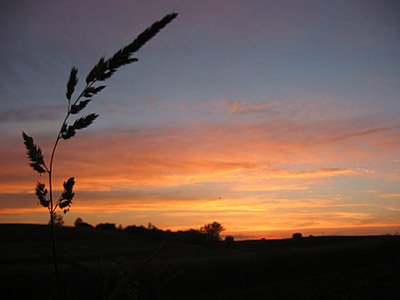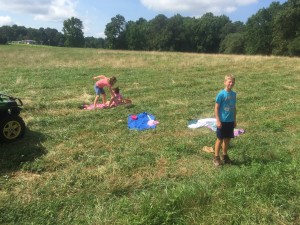I put farmer in quotes in the title because odds are, you aren’t really thinking of being a production farmer. 1000 acres of row crop land, selling to the commodities market, getting your pesticide applicator’s license, and living on minimum wage when we calculate your hours spent vs. your actual return. No, you’re not talking about being a farmer in the traditional sense. You’re looking to be a “gentleman farmer” which is someone who owns a farm, works the farm as he/she pleases, and makes the majority of your income from an off farm source.
Why a gentleman farmer? Whatever it is that you do, you’ve had enough success that you can afford to improve your lifestyle and that of your family. And there is just something about having some acreage that you can call your own that sounds appealing. But will it be really? What is it like to be a farmer? Should you really make the leap?
I can tell you, because nearly 40 years ago, my father decided to return to his agrarian heritage and bought a farm. I moved, at age 7, away from my friends, my neighborhood, and all that I knew. Our farm is 84 acres and operated then as a horse and cattle farm. It now, under my ownership, operates as a pig and cattle farm.
When I was a kid, living on a farm meant you were cut off from the world, and not in a good way. We had three channels of television, computers with no internet (for a period of time), no easy delivery of goods (no Amazon Prime memberships), no friends close by, and no cell service (once that became a thing). When you were on the farm, you were definitely cut off from the world. Of course, for parents who worked stressful jobs, this was part of the appeal. But that feeling of being “out there” can become a burden. If you are used to a 5 minute trip to the grocery store, turning it into a 35 minute trip can get old fast when you’ve forgotten the cranberry sauce. Will being out in the country really be better? In today’s modern world, the answer is a resounding yes!
So here are ten reasons you should move to a farm.

1. There is no substitute for owning acreage.
The freedom it gives you is beyond measure. Owning all that you see, having a buffer between you and your neighbors. The ability to quietly enjoy the sunset with your loved ones with no distractions from the neighbors loud music. It’s all as real as the pictures seem and something that suburban life can’t compete with.
2. It’s for the children.
Maybe your kids are still relatively young. Maybe they’ve gotten a bit older by now. Whatever age they are, being on the farm is good for them. Do you want your kids to look like this?

Or like this?

Guess which one is better for them. Guess which one makes real memories.
Remember being told to be home when the street lights come on when we were kids? With acreage, kids can go outside and be kids. They will get poison ivy, cut and scratch themselves, build tree forts, and learn a million skills that make for healthy adults. I’ve never met a farmer who was a helicopter parent.
3. Farming is good for you.
When I sold my company and started farming full time, my blood pressure dropped 36 points in just a few months. Yes I still have stress. Yes things still go wrong. And you may not be ready to stop working, but the benefits of being outside and on the farm can improve your health anyway. Even short bouts of outdoor exercise can have a dramatic affect on your mental and physical well being.
4. No Home Owners Association (HOA)
Is your mailbox the wrong color? Did your grass get 1/2″ too tall while you were on vacation and you received a letter? Can you not park your boat in your driveway? These kinds of issues simply don’t exist on a farm. Your land, your decision. Your neighbors don’t know, don’t care, and can’t do anything about it anyway.
5. No zoning or government interference.
This is simply my favorite topic in farming. Nearly everyone I meet with the government is actually here to help me. Not that I meet many government people. In North Carolina, farmers enjoy a myriad of exemptions from regulation and zoning (see link above for the list). It’s part of the reason that farming is so active in North Carolina.
We’ll cover 6-10 in our next post, part 2.